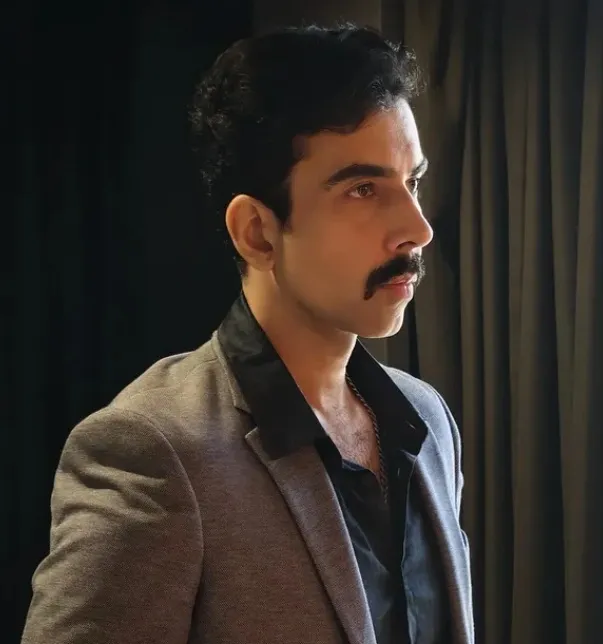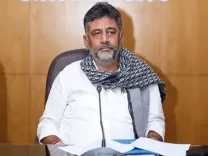Did Naveen Kasturia Change His Walk for ‘Salakaar’?

Synopsis
Key Takeaways
- Naveen Kasturia adapts his physicality for a convincing portrayal of an Indian spy.
- Director Faruk Kabir emphasizes authenticity in character representation.
- The series explores critical historical events impacting modern geopolitics.
- Co-star Mukesh Rishi adds depth to the narrative as Zia-ul-Haq.
- The storyline intertwines two timelines, enriching the viewing experience.
Mumbai, Aug 9 (NationPress) Actor Naveen Kasturia, who is garnering significant acclaim for his performance in the newly launched OTT series ‘Salakaar’, disclosed that the series' director, Faruk Kabir, instructed him to adjust his walk and gait.
In this series, Naveen portrays an Indian spy stationed in Pakistan, closely monitoring the intensification of atomic bomb development.
During a promotional interaction with IANS, the actor shared, “There were aspects I thought I wouldn’t need to focus on, but I did, particularly regarding my physicality. I tend to walk like a duck, so Faruk advised me to walk straight.”
“I needed to work on my posture. Rehearsals were essential for the action sequences. My co-star Mukesh Rishi has a disciplined background, while I am quite the opposite. Since I am depicting a soldier, I needed to embody that as well,” he elaborated.
‘Salakaar’ is a period spy drama-thriller that shifts between two timelines: the 1970s and 2025. Naveen's co-star, Mukesh Rishi, plays Muhammad Zia-ul-Haq, the Pakistani dictator who accelerated his nation's atomic bomb initiative.
Zia-ul-Haq stands as a pivotal figure in many of India's challenges. He was the second dictator of Pakistan after General Ayub Khan and gave robust shape to Zulfikar Ali Bhutto’s strategy of “Bleed India by a thousand cuts,” a prolonged campaign against India for Pakistan’s interests.
Later, Zia orchestrated the framing of Zulfikar Ali Bhutto, leading to his death sentence approved by handpicked judges.
His political maneuverings are largely to blame for present-day geopolitical strains in Southeast Asia. He initiated industrialization and deregulation, improving Pakistan's economy significantly. In 1979, after the Soviet invasion of Afghanistan, Zia adopted an anti-Soviet position and supported the Afghan mujahideen, strengthening relations with both China and the United States.









